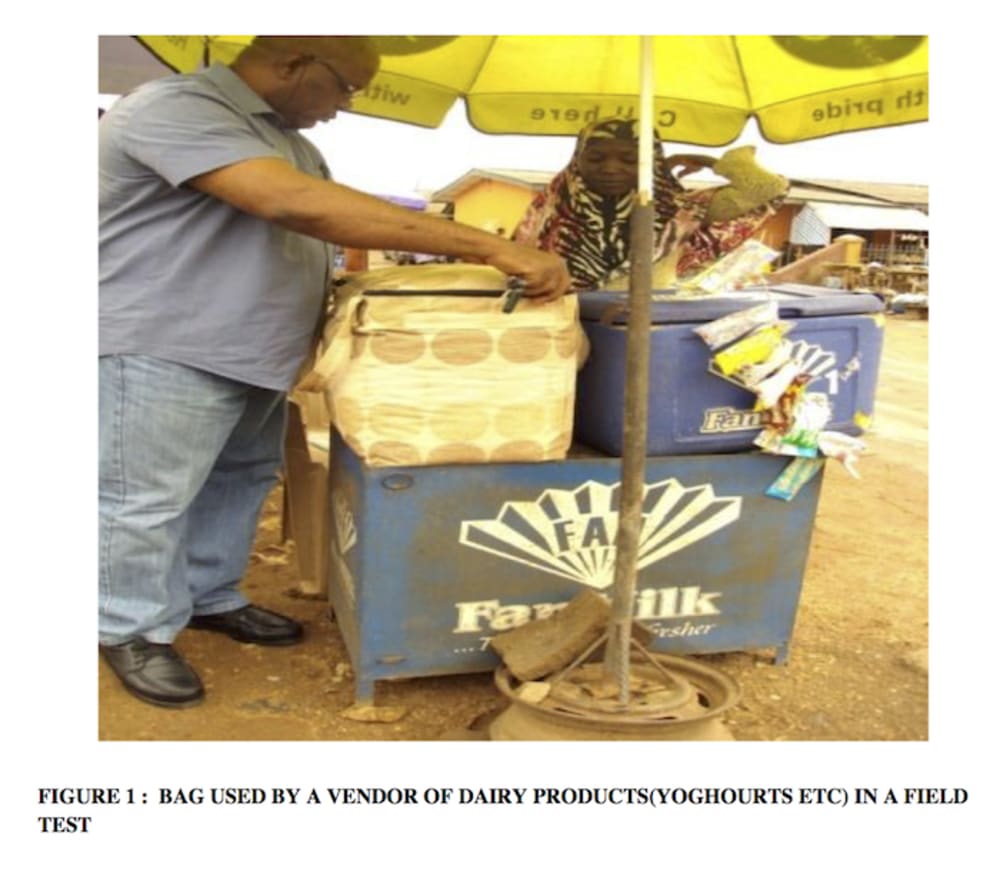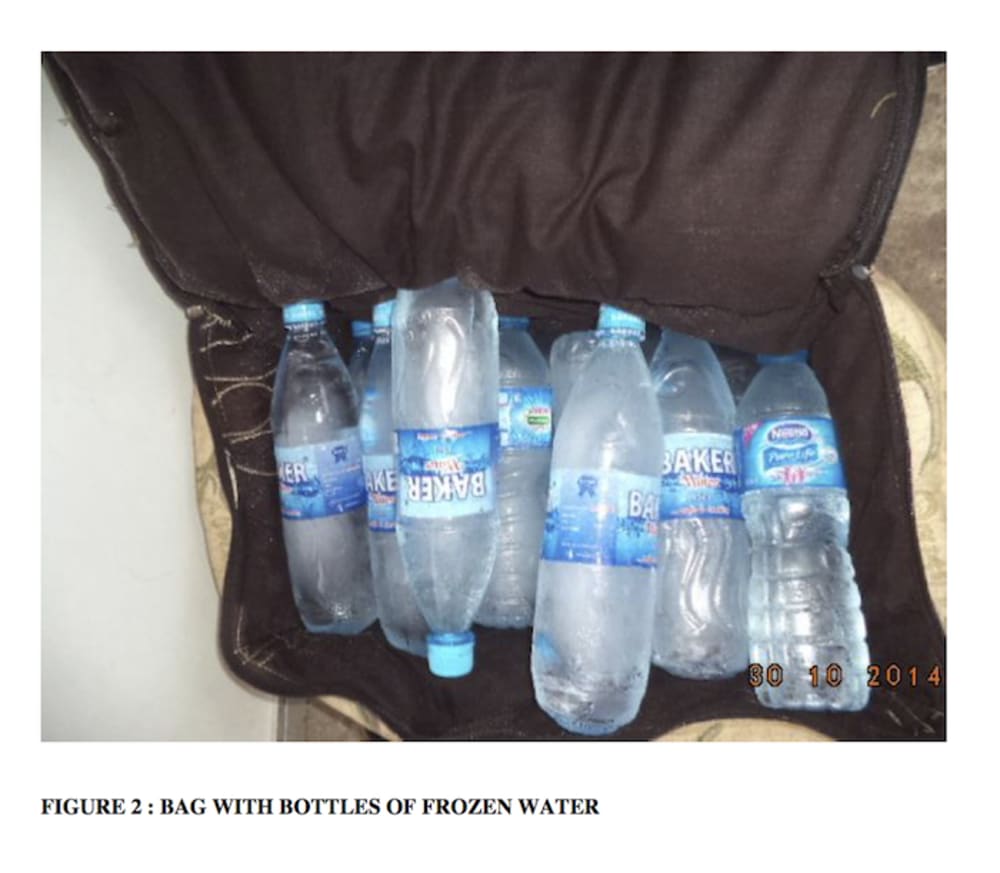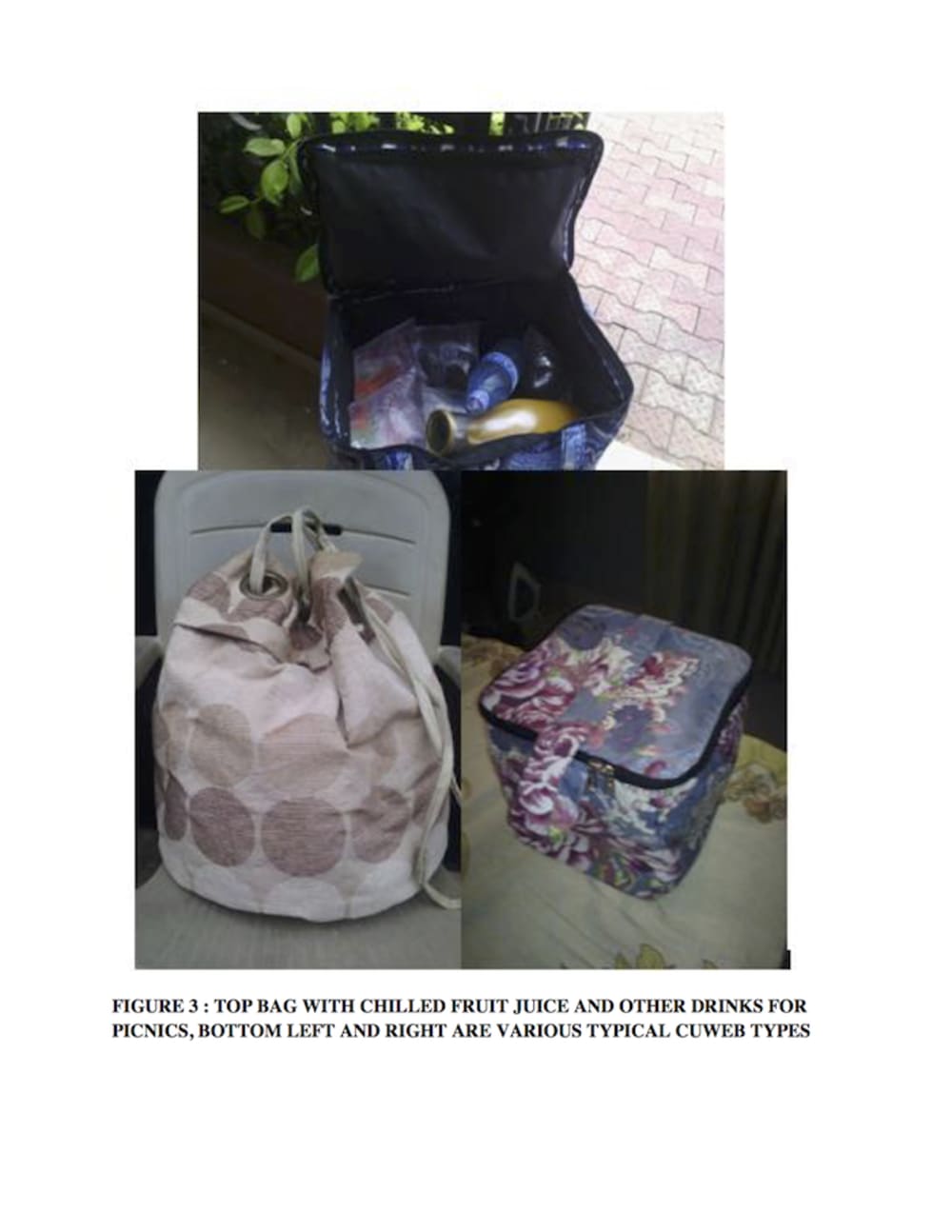Small businesses constitute a vital employment chain. They are labor intensive though capable of helping create most of the one billion new jobs the world will need by the end of the century. Their unimpressive performance has drawn research interests on their challenges and prospects in recent years. In Nigeria and other emerging economies like other sub-Saharan countries, small businesses (street/highway hawkers, food vendors (mobile trucks /vans and food canteens), dairy product distributors (milk, yogurt, sweets), and caterers have devised various techniques to improve upon their service delivery for cold products and to keep processed food/snacks hot including shawama. Their greatest challenge is the unavailability of an effective and efficient cold/ freeze/heat retention vessel/container and the very high cost for existing effective ones. Also, there is the challenge of erratic power supply/unavailability of electricity (energy poverty), and the high cost of ice blocks. In all, these factors have made business operations costly, ineffective, strenuous and boring with reduced profits/possible health challenges. All these could impact negatively on the quality of life. Also, indoor air quality is a challenge resulting from cooking with firewood and coal resulting in billions of deaths.
The need to improve the quality of life at home, convenience for leisure during picnics and whilst offering catering service, camp meetings as well as the need to enhance service delivery, increase profit margins and support small businesses cannot be over emphasized. The power challenge, non-availability of effective retention (cold/heat) vessels, high cost of effective retention vessels need be dealt with. The solution wrests in the provision of a cost effective, retention efficient vessel that is capable of dealing with the challenges thus supporting small businesses and possibly other leisure ventures. The CUWEB employs appropriate insulation materials as lagging in a well-tailored bag to retain hot and or cold temperatures to keep food hot(acting as a lunch bag), hybrid cooker(for home cooking and for caterers), keeping milk, drinks, water etc chilled for picnics, travelling, hawking by retaining these temperatures for at least 48 - 72 hours. They can be made locally engaging tailors and bag manufacturers and also by engaging foreign partners for mass production using selected cloth materials, lagging and another accessories to form a bag of chosen dimension.
The CUWEB finds clear applications and use in homes (cooking/preservation), offices (lunch bag), hospitality/catering/events (picnics), small/medium scale businesses (hawkers mate), transporters (travelling companion); hawkers, food vendors, caterers, dairy product merchants, domestic use at homes, individual use as lunch boxes and as travelers/picnic delight. This makes it an explorer. We can save money, save the environment, live healthy by using the (CUWEREB).
Like this entry?
-
About the Entrant
- Name:Samuel Tita Wara
- Type of entry:teamTeam members:Prof. Samuel T. Wara, Dr. H. Orovwode, Covenant University Center for Research, Innovation and Discovery)
- Patent status:pending








